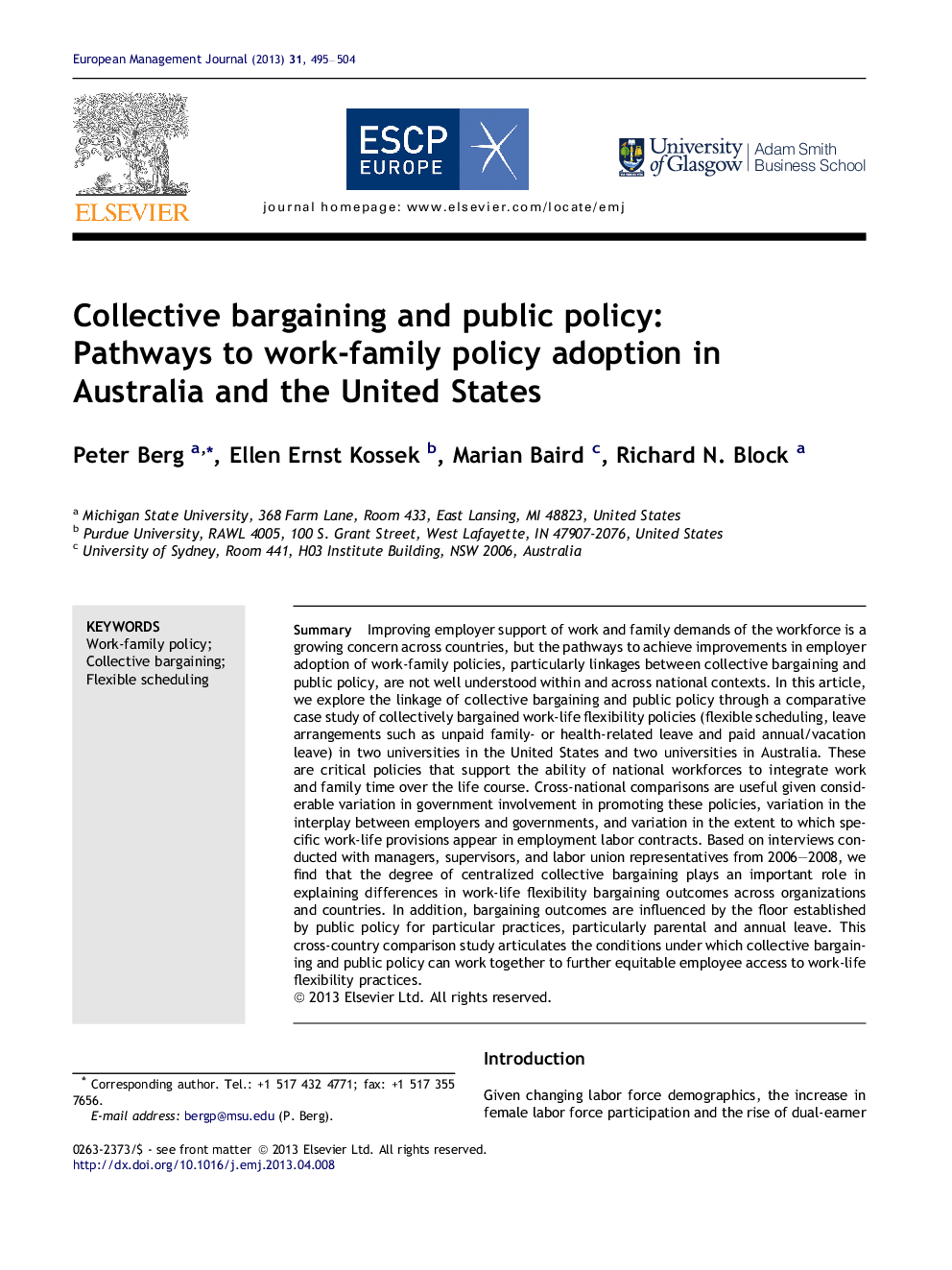| کد مقاله | کد نشریه | سال انتشار | مقاله انگلیسی | نسخه تمام متن |
|---|---|---|---|---|
| 1014818 | 939690 | 2013 | 10 صفحه PDF | دانلود رایگان |

• Collective bargaining interacts with public policy in ways that lead to differential access to work-life flexibility across groups.
• Bargaining structure plays an important role in explaining differences in work-life flexibility bargaining outcomes across organizations and countries.
• Collectively bargaining for work-life flexibility in the U.S. requires favorable labor market conditions and high bargaining power.
SummaryImproving employer support of work and family demands of the workforce is a growing concern across countries, but the pathways to achieve improvements in employer adoption of work-family policies, particularly linkages between collective bargaining and public policy, are not well understood within and across national contexts. In this article, we explore the linkage of collective bargaining and public policy through a comparative case study of collectively bargained work-life flexibility policies (flexible scheduling, leave arrangements such as unpaid family- or health-related leave and paid annual/vacation leave) in two universities in the United States and two universities in Australia. These are critical policies that support the ability of national workforces to integrate work and family time over the life course. Cross-national comparisons are useful given considerable variation in government involvement in promoting these policies, variation in the interplay between employers and governments, and variation in the extent to which specific work-life provisions appear in employment labor contracts. Based on interviews conducted with managers, supervisors, and labor union representatives from 2006–2008, we find that the degree of centralized collective bargaining plays an important role in explaining differences in work-life flexibility bargaining outcomes across organizations and countries. In addition, bargaining outcomes are influenced by the floor established by public policy for particular practices, particularly parental and annual leave. This cross-country comparison study articulates the conditions under which collective bargaining and public policy can work together to further equitable employee access to work-life flexibility practices.
Journal: European Management Journal - Volume 31, Issue 5, October 2013, Pages 495–504